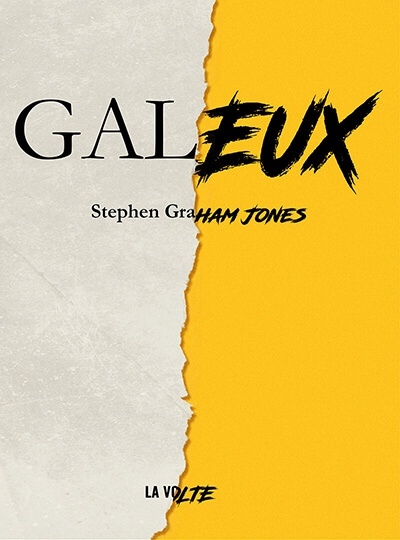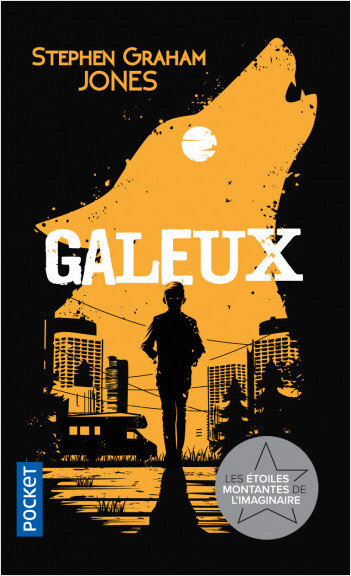There are those authors you wish you could translate, and Stephen Graham Jones is one of them for me. I discovered his work during my internship at the éditions Rivages in 2021: they asked for my thoughts on The Only Good Indians, and whether we should translate it. I was both convinced and enthusiastic: this tribute to slasher movies dealing with what it means to be an Indian today is a gem, as raw in its tone as it is refined in its language. Roughly a year later, the deed is done: Un Bon indien est un indien mort has been published, and the French press loves it.
I wasn’t lucky enough to translate SGJ’s work. However, when I attended a conference he gave at the America book festival in Vincennes, near Paris, I was lucky enough to act as his interpreter for an interview with a crime fiction blog called Nyctalopes. Stephen proved to be both a very nice and interesting fellow in person and so, despite having spent more than enough on books for the month, I gave in to literary temptation and bought Galeux (La Volte, 2020), the French translation of Mongrels and his only other novel available in that language. I gobbled up this werewolf story, and I would like to take a quick look at a short passage of Mathilde Montier’s excellent translation. Be careful then, some minor spoilers below.


But first, some context: Darren, the teenage narrator, is here talking about werewolf/human hybrids which are abominations according to the werewolf tradition. Here is the original description in English:
Darren said that Grandpa’s name for them was Sad Eyes, but I’d always thought he heard wrong. They’re supposed to have these human-looking eyes, but “Sad Eyes” feels like a corruption of something Arabic. Like they’ve known these animals over there as well. If they are even animals.
And here is Mathilde Montier’s French translation:
Grandpa les appelait apparemment des Maussades, mais j’ai toujours été persuadé que Darren avait mal entendu. Ils avaient beau avoir ces yeux à l’expression si humaine, ce nom sonnait à mon oreille comme une corruption de l’hébreu. À croire qu’on connaissait aussi ces animaux, là-bas. Si on peut parler d’animaux.
I don’t think “Sad Eyes” points to any specific word in Arabic. But even if it were the case, you would be hard put to find a nickname for these hybrids that would sound close in French (the /ɑɪz/ ending being non-existent in French). Rather than translating this bit out, Montier has had an idea for a semantic shift that is very clever in several ways.
First, by replacing Arabic with Hebrew, she keeps a Semitic language, and thus the perceived distance from the daily life of an American teenager. Then, “Maussade”, which could translate as “sullen”, keeps the idea of sadness pertaining to the tragic condition of these hunted hybrids. Finally, this word is an homophone of the Hebrew “Mossad”, shorthand for the Israeli special forces which the reader might have encountered before. In a way, the Middle-East is referred to in an even clearer way than in the original, which is almost improved upon.
I love these excerpts you pay little attention to when reading, but which must have been a bona fide translation problem. I’m willing to bet that Montier pulled her hair out at least for a bit before she finally found her (very elegant) solution. Kudos to her!
As for you, go read yourself some Stephen Graham Jones if you haven’t already. In English, in French, doesn’t matter as long as you do.

2 comments
Comments are closed.